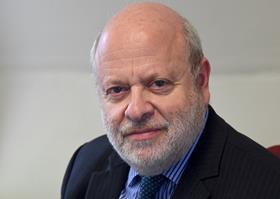The UK is gearing up for future trade deals after Brexit. For instance, the Department of International Trade published at the end of last week a joint statement with its US counterpart after the fifth meeting of the UK-US Trade and Investment Working Group.

This working group, among other things, ‘explores ways to strengthen trade and investment ties both now and in the future, including through a free trade agreement.’
Lawyers are clearly going to be part of these discussions, given the importance of exports in legal services to the UK economy. And the whole UK legal profession will be involved, not just English solicitors. So how easy is it to sell our UK professions, which includes explaining our structures? I will compare our position at each stage with that of the US as an illustration.
As everyone knows - but it is worth on this occasion repeating the obvious - we are made up of three jurisdictions: England and Wales, Scotland, and Northern Ireland. Each jurisdiction has two legal professions, solicitor and barrister - except barristers are called advocates in Scotland. Not all three jurisdictions follow the common law, since Scotland has a mixed system of common and civil law. Each of the six professions is separately regulated.
Compared to the United States, it is not so strange. They have fifty states, each with its own legal profession, separately regulated. Fifty is a lot more than three, but the US is a vastly bigger country. Not all its fifty jurisdictions follow the common law, either – Louisiana is a civil law state, resulting from its Spanish and French heritage.
We chiefly differ from the US so far – there is more to come – in having a split legal profession. This is quite difficult to explain because the lines between our two professions have become so blurred. Barristers appear in the higher courts … yes, well, so do some solicitors. Senior barristers are appointed QCs … yes, well, so are some solicitors. But this is our history, and is unlikely to change, and so must be explained. (Trying to explain it to a jurisdiction with a single legal profession which is singly regulated might be another matter.)
When we come to regulation, Scotland and Northern Ireland’s legal professions are mainly regulated by their professional bodies. In England and Wales, however, the Legal Services Act 2007 has intervened to impose an oversight regulator, the Legal Services Board, followed by the approved regulators - the Law Society and the Bar Council - followed by the bodies to which their regulatory powers have respectively been delegated, the Solicitors Regulation Authority and the Bar Standards Board.
To comment on the position in England Wales, I need only refer to the consultation document published last week by the Legal Services Board itself on the internal governance rules (IGR) between the approved regulators and the delegated regulatory bodies: ‘Misunderstandings about the residual role [of the approved regulator] have underpinned a significant number of disagreements between approved regulators and their regulatory bodies under the current IGR’. Unlike the split professions, this has not been created by centuries of tradition, but by politicians just over 10 years ago.
In the US, on the other hand, lawyers are by and large regulated by the state supreme courts, whose chief justices gather in a body called the Conference of Chief Justices.
As for scope of practice by foreign lawyers in the UK, we have a good story to tell. With slight differences, all three of our jurisdictions are open to the kind of transactional work that US attorneys come to the UK to practise, whether by established foreign lawyers or through temporary practice (fly-in fly-out). We each have our reserved activities, but beyond those, there is freedom to provide legal services. That is on the solicitor side. On the barrister/advocate side, it is a more mixed story – but nearly every jurisdiction has special rules about who may appear before its courts. In any case, US attorneys do not come here to appear in court.
In this aspect, the US does not compare well. Only 33 of the 51 jurisdictions (including DC) permit foreign legal consultants, and only 11 have specific rules permitting temporary practice by foreign lawyers. The US has its own history and traditions which cause them difficulties in this area, mainly regarding states’ rights under the constitution, which leads to the fact that the crossing of state boundaries by US lawyers is not guaranteed, though it is becoming easier.
Reviewing us as a whole, our complexities principally arise from the structure of our professions, which is historic. There has been complexity added on the regulatory side regarding the profession in England and Wales, though. Future changes should make it easier to explain ourselves abroad, not more complex, to help the UK in trade negotiations.































2 Readers' comments